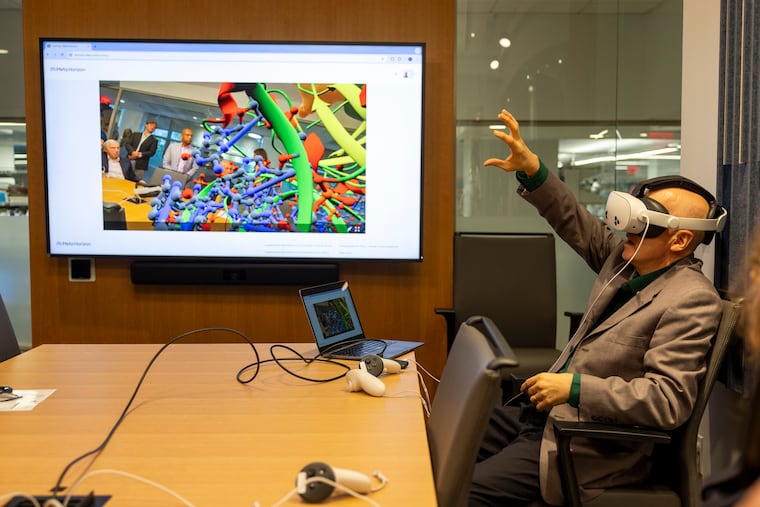Wistar Institute opens new center for medicine development following million donation.
Paul Lieberman, a researcher at the Wistar Institute, has dedicated the past three decades to studying Epstein-Barr virus (EBV), a ubiquitous pathogen affecting approximately 90% of the adult population. This virus is of particular concern due to its association with multiple cancers and autoimmune diseases. Lieberman is optimistic about a new drug he has developed, aimed at addressing EBV-driven malignancies, which is currently undergoing clinical trials.
This strategic initiative aligns with the historical mission of the Wistar Institute, an independent biomedical research entity established in 1892 in West Philadelphia, which has been instrumental in the development of several vaccines, including those for rabies, rubella, and rotavirus. Lieberman’s goal is not only to contribute to this rich legacy but also to expedite the transition from scientific discovery to clinical application—a process that can often be lengthy and complex.
In August 2023, Lieberman was appointed as the inaugural director of the newly established Center for Advanced Therapeutics at Wistar. This center is funded by a generous million donation from an anonymous benefactor and serves as a centralized hub for scientists interested in developing new medical therapies. To facilitate this research-to-market pathway, the center will be expanding its workforce, bringing in specialists who can navigate the diverse challenges involved in the drug development process, which encompasses regulatory compliance, manufacturing hurdles, and extensive clinical trials.
Lieberman emphasized the need for streamlined processes to bridge the gap between basic research and the delivery of viable treatments. The center aims to support research across three critical areas: cancer, infectious diseases, and autoimmune disorders. In the United States alone, approximately 600,000 individuals succumb to cancer annually, with millions more affected by viral infections and autoimmune conditions.
The newly formed center will build a cohesive team of experts experienced in industry collaborations, medicinal chemistry, and clinical practices, who will work towards the advancement of personalized therapies. Lieberman highlighted the urgency of this work: “Patients are waiting. Families are counting on us to make a future where cancer, infection, and autoimmunity are no longer life-defining points.”
To enhance its translational research efforts, Wistar plans to implement a coordinated approach with its office of business development. This strategy is intended to streamline the commercialization process, which involves securing funding, establishing partnerships, and ensuring intellectual property protection. Given the inherent risks of early-stage drug discoveries, the center will utilize various methodologies to mitigate risks and ensure safety and efficacy in therapeutic candidates.
Additionally, the Center for Advanced Therapeutics will conduct its research, hiring investigators to pursue hands-on science and incorporate computational work focused on artificial intelligence and informatics. Lieberman envisions a collaborative team equipped to tackle some of the most urgent biomedical challenges of our time, despite the uncertain landscape facing federal research funding.
Overall, Wistar’s endeavor exemplifies a commitment to expediting the translation of cutting-edge scientific discoveries into effective treatments that could significantly improve patient outcomes in critical health areas.
Media News Source







